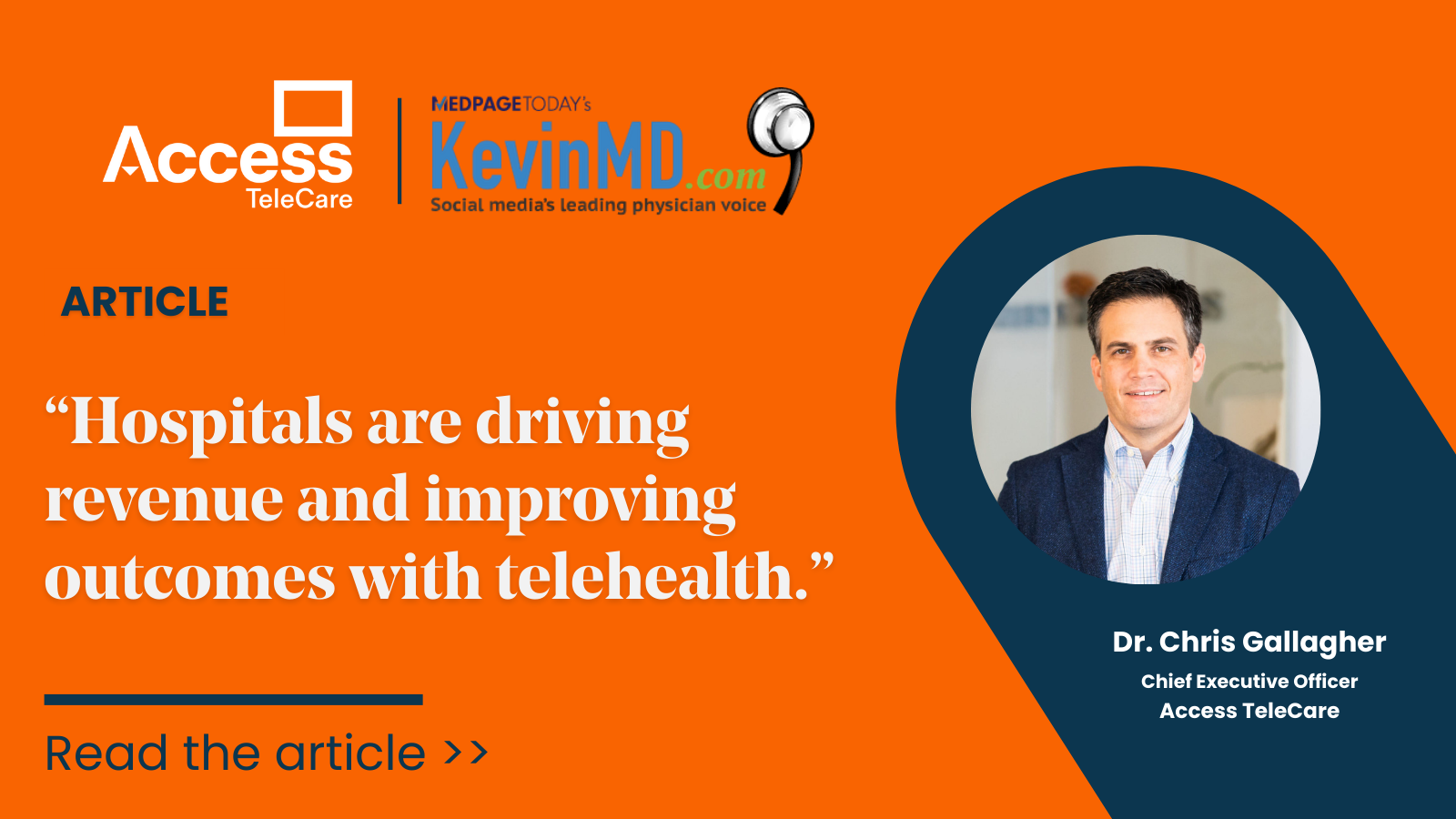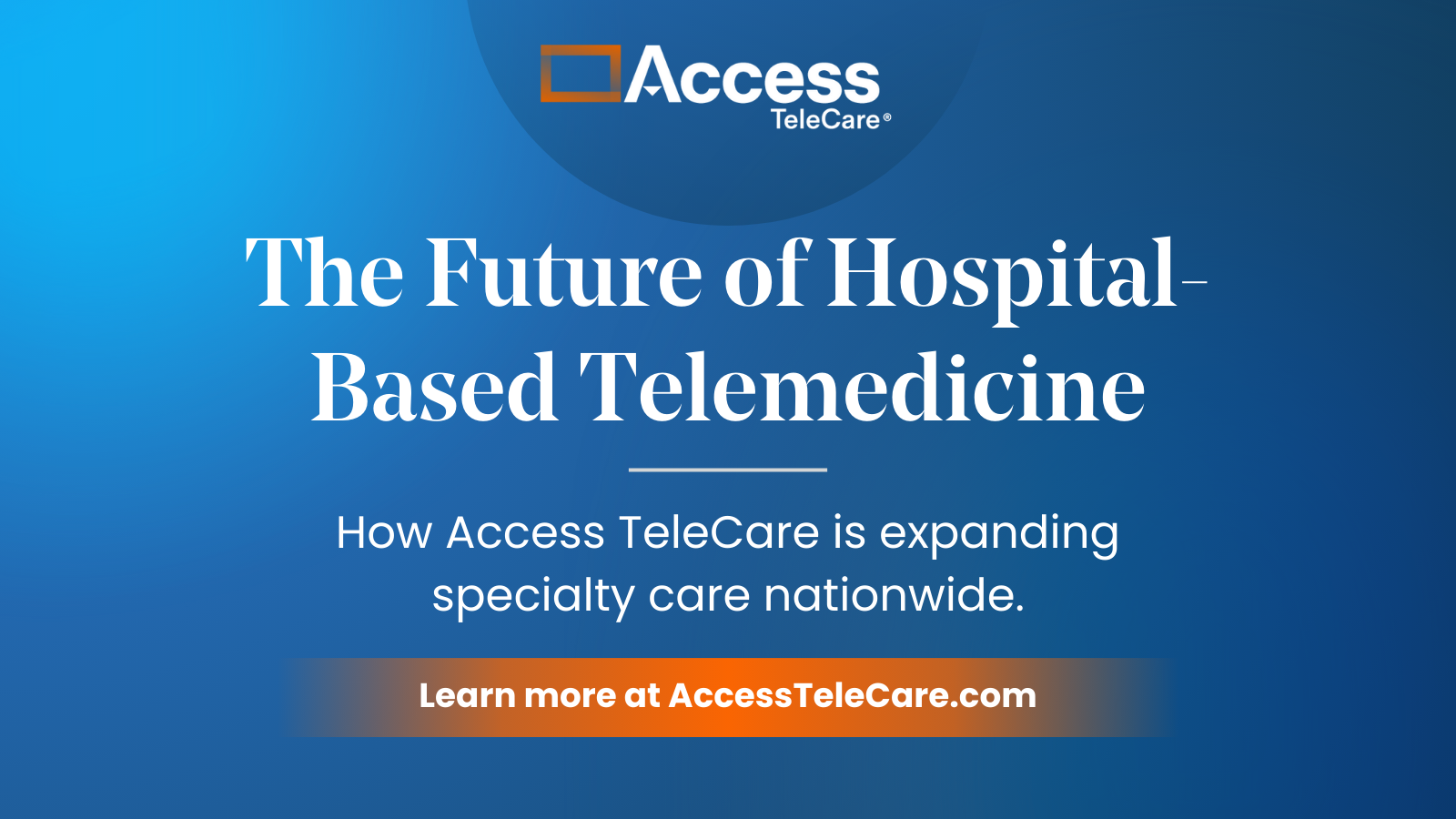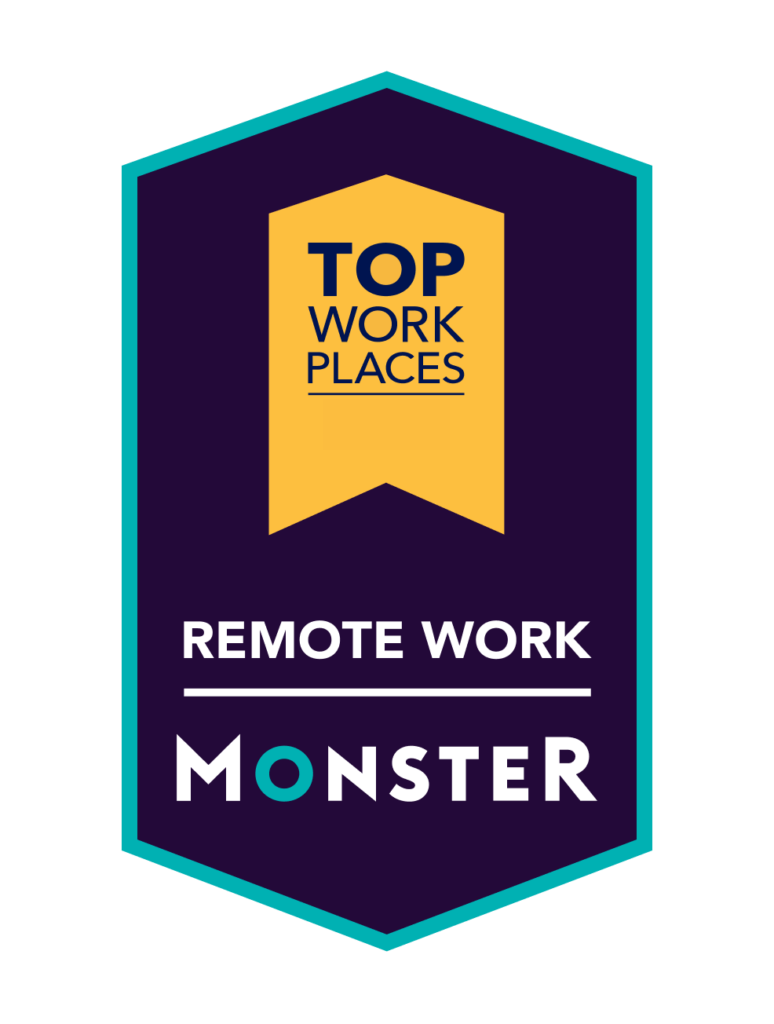For Martha Garcia, former VP of Clinical Quality and Compliance for Access TeleCare, a clinical quality management program in telemedicine demands evidence-based practices, outcomes tracking and measurements, and continuous improvement. In other words, it is no different than the clinical quality programs Garcia has created and managed at brick-and-mortar hospitals throughout her career.
“I’ve been involved in The Joint Commission accreditation surveys since 1979. I have seen a complete transformation in the process over the past 40 years. For me, accreditation represents that I work for an organization that believes in always striving to continuously improve quality and promote patient safety,” Garcia explains. “Just because it takes place in a virtual environment changes nothing.”
The requirements for a clinical quality management program in telemedicine are the same as those in ambulatory healthcare organizations:
- Collect data to monitor performance
- Set priorities for the collection of the type and frequency of pertinent quality data
- Leadership involvement in establishing performance priorities
- Analyze and compare internal data over time to identify patterns, trends, variations
- Identify opportunities for improvement and take actions on those opportunities
- Take action when improvements are not sustained
The Highest Standards for Quality Telemedicine
Garcia began her healthcare career as an RN, with certifications in Critical Care, Emergency, and Trauma. She later earned a dual master’s degree in Business and Nursing (MBA/MSN) from the University of Miami. Her leadership skills, focus on improving patient outcomes, and expertise in building teams led to ever-increasing responsibility and visibility in multiple C-suite roles in several Florida hospitals. Garcia helped launch many new specialty service programs, such as Miami-Dade county’s first paired exchange kidney transplant program.
In 2016, Garcia was recruited by Neurocall (a teleNeurology company acquired by Access TeleCare in 2017) as Vice President of Quality. After the acquisition, Garcia moved into her current role, working with Chief Medical Officer, Til Jolly, MD and the Chiefs of Neurology, Psychiatry and Critical Care at Access TeleCare to continue development and oversight of a comprehensive clinical quality management program. Telemedicine has given Garcia a chance to be an even greater quality evangelist, and she relishes he role in helping multiple hospitals achieve improved outcomes:
“We work with hundreds of hospitals, observing unique aspects of some hospital practices. With this perspective, we are able to report to our hospitals on clinical best practices, workflow mechanisms, and other issues that can improve individual hospital performance,” says Garcia.
As a former hospital executive, Garcia is well-suited to manage the requirements for a holistic and robust clinical quality management program. Some of the activities Garcia is involved in on a daily basis include:
Patient safety. Access TeleCare follows strict patient identification procedures at both the Consult Coordination Center (CCC) and at the provider level to ensure patient safety. Education and training is an important focus for Garcia.
Standards of practice. Access TeleCare’s psychiatry, neurology, and intensivist groups all regularly review changing standards and, when appropriate, make immediate changes to internal protocols (such as the American Heart Association/American Stroke Association revised guidelines for treating stroke.) As these standards change, physicians work with client success staff to ensure that client hospitals are aware of changes and able to implement them effectively.
Quality Leadership and Oversight. Each practice specialty group at Access TeleCare has a designated quality committee that sets continuous and intermittent performance parameters, and then directly reviews cases and trends in performance, regularly reporting on these issues to clinical leadership.
Physician credentialing, licensing and privileging. The Joint Commission requires appropriate licensure of the treating physician, as do state laws across the United States. This is more challenging in telemedicine because providers can be licensed in many states which is typically not the case at local facilities.
Coverage. Scheduling of physicians is an important function of telemedicine. It is critical that Access TeleCare has an adequate number of qualified providers to meet the 24/7 demands of 500+ hospitals.
Compliance with accreditation standards. The Joint Commission (TJC) is one of the most respected names in healthcare. It is an automatic “evidence of commitment to excellence” and strengthens client confidence in the quality and safety of care, treatment and services. It also helps improve safety efforts within the organization, which improves risk management and risk reduction. Access TeleCare was the first telemedicine organization to have been accredited by TJC (in 2006). The standards set by TJC provide Access TeleCare with a framework for organizational structure and management.
The Joint Commission recently published changes to the standards for telemedicine. This acknowledges that several standards which apply to ambulatory settings do not apply to telemedicine, such as infection control practices, medication administration, life safety standards, and environment of care.
Recently, the ClearHealth Quality Institute (CHQI) starting accrediting telemedicine providers. Access TeleCare was among the first wave of organizations to receive accreditation. With CHQI certification, there is a strong examination of clinical, legal, technology, and administrative standards to advance safety and quality.
Physician performance evaluation. Access TeleCare has 200+ physicians and monitors their performance. Senior members of the medical staff perform practice evaluations, and reviewers assess randomly-selected charts for inclusion of comprehensive documentation elements. Physicians are evaluated during initial onboarding, as well as through ongoing professional practice evaluations (OPPE). A focused professional practice evaluation (FPPE) review can be performed on a case-by-case basis if a concern is identified.
Outcomes tracking and measurements. As part of the quality process, Access TeleCare has a dedicated staff working to acquire and analyze outcomes information available from facility medical records, such as hemorrhagic conversion in thrombolytic cases and reversal of commitment in psychiatry.
But, that isn’t all. Being a champion of quality means that Garcia is deeply connected to all other aspects of Access TeleCare, too, including physician and executive leadership, operations, IT, HR, project management, analytics, training, sales, and marketing. “Quality is everyone’s job. It takes a huge team to make it happen. Patient-care is our first priority,” says Garcia.
Please contact us to see how we can help your hospital build your telemedicine program.








